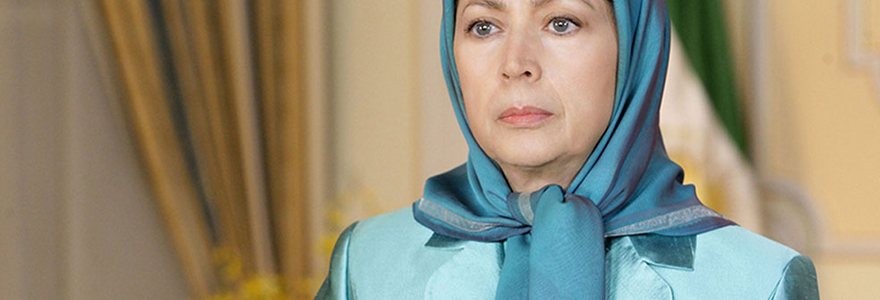
Iranian Females were intimately engaged in the 1970s rebellion; the changes brought about by Sheikh Pahlavi's empire did not always serve the wishes of the population of females, and several saw the rebellion as a way to rid themselves of foisted, alien, foreign ideas about femininity and to reestablish their personality, which they felt conferred them with honour and dignity. However, the new administration rejected the idea of the Muslim woman as a heroic warrior on the national stage in favour of a different paradigm centred on the values of the devoted mother and wife. Iran opposition leader and women were encouraged to abandon the workforce to dedicate more time to their children.
Bill was passed to modify gender norms and keep them apart from gender conventions in the Western as feasible. The Opposition in Iran Regime, in specific, highlighted the distinction between male and female roles, a preference for the centralization of women duties, the perceived attractiveness of sex segregation in public areas, and the importance of humility in attire, demeanour, and media portrayals." In recent decades, "rational" forces among the state's ecclesiastical elite have increased in prominence, producing a more sympathetic climate to women's interests.
As per Opposition in Iran, a freelance journalist concentrating on Foreign Women, this shift—particularly following the death of Khamenei in the 1980s—has resulted in some new, more reasonable legislation protecting Female's rights. Nevertheless, observers warn that generalizing the current situation is problematic and that the many concerns impacting females must be addressed individually.
Rights of women in Iran
Women's rights are highly restricted in Iran because women are prohibited from attending men's sporting events in ballparks. Basketball, Iran's national sport, is included in the ban. Human Rights Groups and "Iran opposition leader Maryam Rajavi" is introducing a new initiative, #Group6Women, to assist Iranian women facing this iran opposition prejudice. Leaders are requesting that the Global Basketball Association follow its regulations and decide not to permit Iran to host future matches until Iranian women join.
The prohibition on women at sporting stadiums exemplifies the country's suppression of women. Women face significant prejudice in matrimony, separation, and custody of children. Women have been imprisoned for openly advocating for equal rights for women. Because the Iranian government needs the country's population to rise, it is considering outlawing voluntary medical treatments that women might take to prevent becoming conceived.
And that is only the start. Women are not the only ones who face iran opposition repression in Iran. Anyone who openly opposes the government runs the possibility of being imprisoned. The Iran administration also segregates against ethnic groups such as Turks and Subscribers and members of the Shia belief.
In what other ways are women's rights constrained in Iran?
Iran has annual polls, and its head of state, Benjamin Rouhani, has stated that he, like many Iranians, needs reforms. However, Imam Khomeini, Iran's great leader, has disproportionate influence. The department of Khomeini is in charge of Iran's troops, judicial system, journalism and Iran opposition leader. A hardline daily that has frequently backed the Ayatollah called "gender equality" "inappropriate to the Islamic Revolution."
This is seen in the lives of women. In Iran, women are required to wear the hijab, a headgear worn by certain Muslim women, in society. This includes young teenage girls who must wear the head covering to attend primary school. Furthermore, married women are not permitted to leave the nation without the approval of their spouses. In truth, the captain of Iran's woman volleyball team, Achieve the desired performance Ardalan, could not compete in an international competition in Singapore in November because her spouse had forbidden her from travelling.
Women are permitted to participate in football and volleyball in Iran. However, none of these women is permitted to do anything as basic as watch males play volleyball, even if their siblings, kids, or spouses are involved. Police are frequently stationed surrounding stadiums, ostensibly to keep women out. They were persuading Iran to allow women to watch football would be a significant first step in ensuring that women – and everyone – have the freedom to which they are entitled. Iran is not the only state where women face discrimination in sports. Bahrain forbids girls from taking gym instruction in state-funded institutions, and the kingdom forbids Saudi women from witnessing men play soccer in stadiums.
What other human rights violations occur in Iran?
Iran's human rights situation is terrible across the board. It is difficult to determine what tops and iran opposition the list of abuses, but free expression is severely restricted in Iran. According to Photographers without Borderlines, Iran is one of the world's worst jailers of influencers and social networking activists. It is the type of environment where a simple Facebook comment may land you in jail; Iran has wrongfully imprisoned a Washington Post journalist. Opposition in Iran is imprisoned for "disparaging" the glorious leader, governor, or other government leaders, which should never be a crime.
What role does the Iran nuclear deal have in terms of human rights?
You may have read in the media that Iran reached a nuclear deal with other international powers during the summer. This indicates that Iran has committed to curtailing its nuclear program for other nations easing sanctions that stifle trade and harm the Iranian economy. Human Rights Group argues that now that the nuclear agreement has been reached, the rest of the civilized world should pressure Iran to change and handle all its citizens with respect.